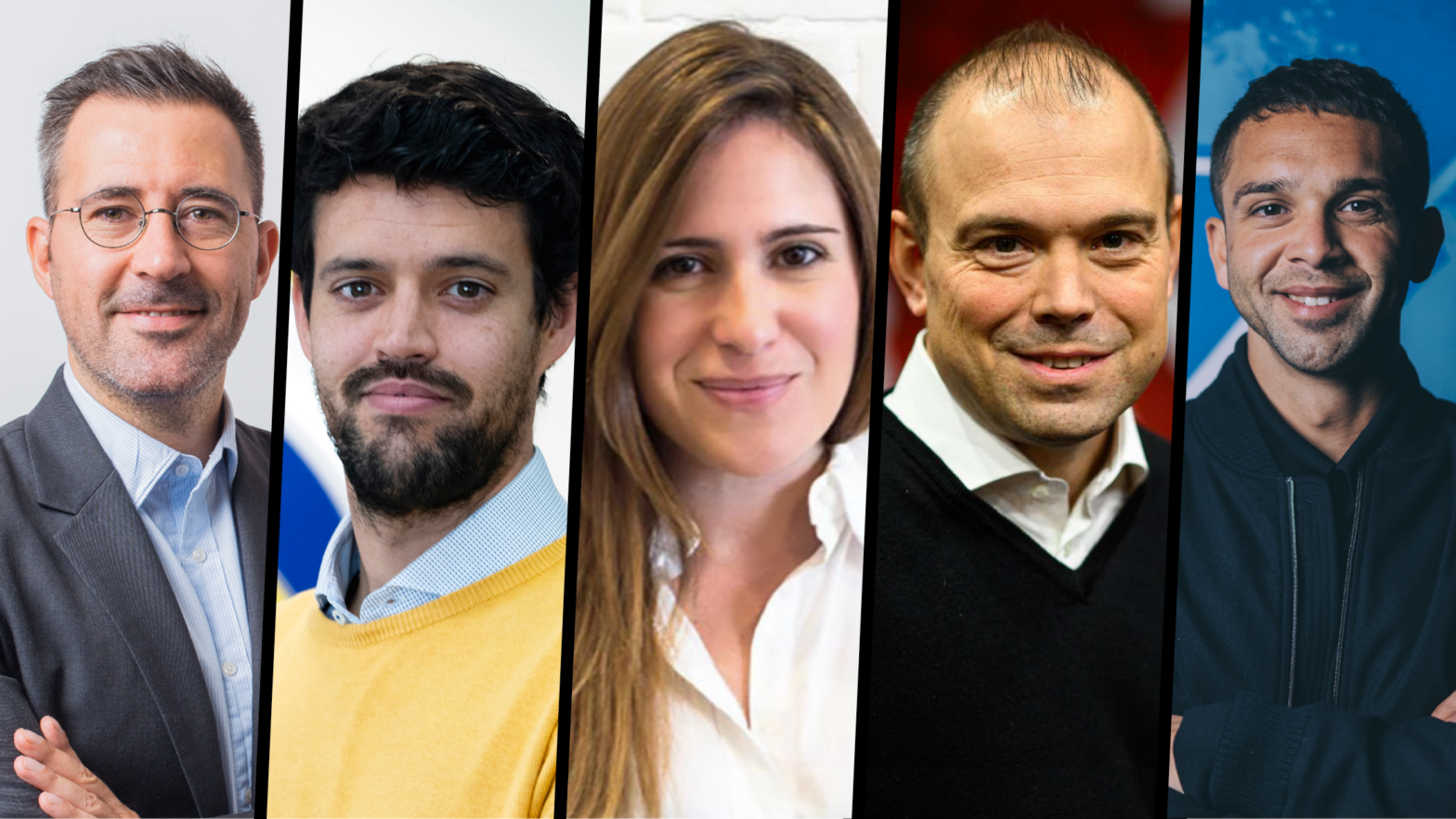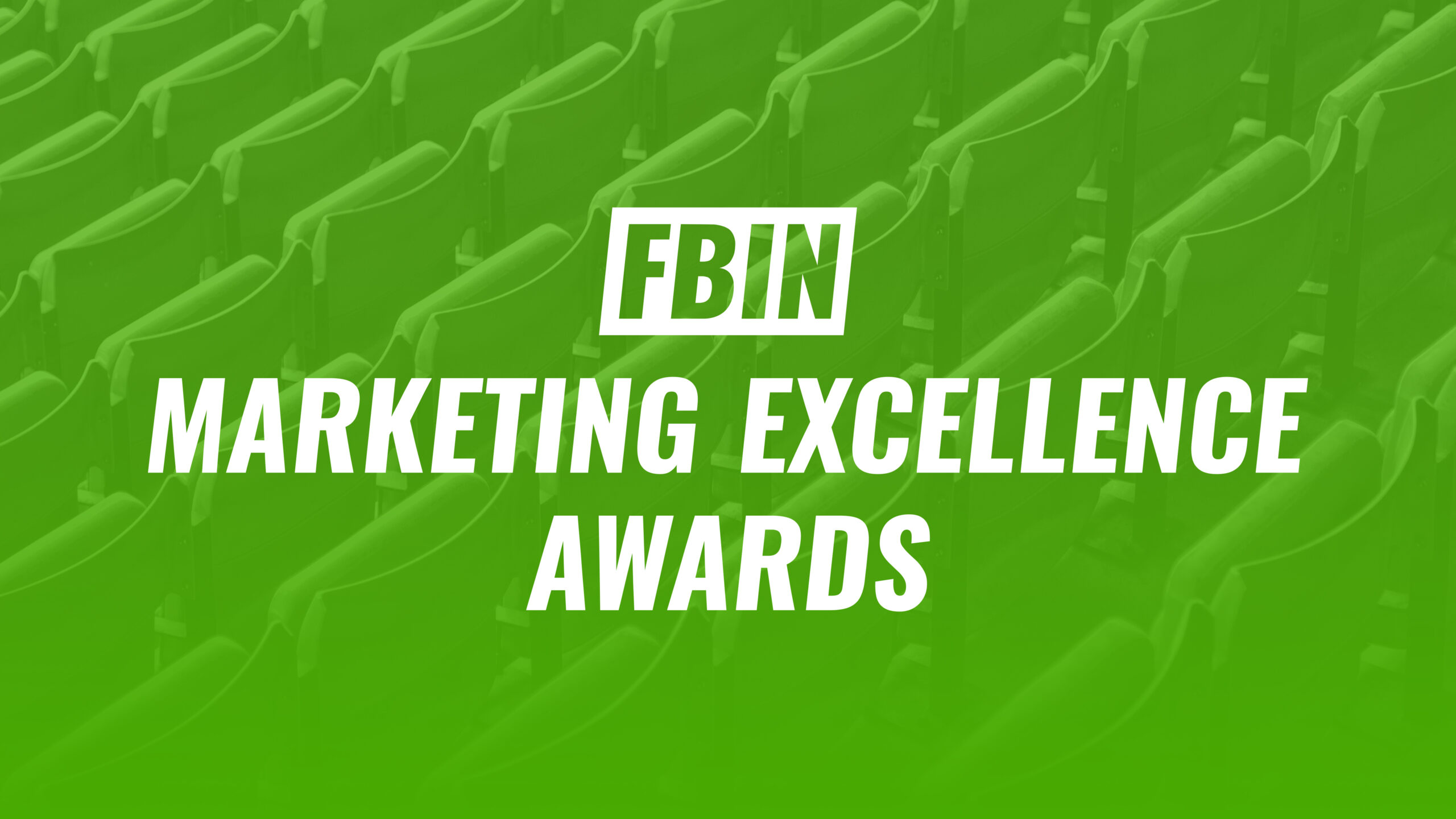On 14th March, FBIN teamed up with LaLiga for the webinar series LaLiga Extra Time, focusing on the theme of Internationalization – How to Build a Global Brand. We were thrilled to have representatives from distinguished clubs: UD Las Palmas, Villarreal CF, Bayer 04 Leverkusen, TSG 1899 Hoffenheim. The session received high engagement, and we were able to extract some insightful questions from the attendees. Below are the follow-up responses from the keynote speakers.
OCTAVI ANORO
INTERNATIONAL DEVELOPMENT DIRECTOR
LALIGA
Do you recommend Spanish teams hire emerging players in potentially interesting markets? Additionally, what is the most critical aspect of your daily work?
Hiring emerging players from potentially attractive markets can indeed be a strategic move for Spanish teams to improve their brand Awareness abroad. Working in a proper 360º approach in the local market, taking advantage of the local player, can help bring global appeal by attracting fans from diverse backgrounds/countries and lead to commercial opportunities. At LALIGA, we don’t directly participate in the recruitment of these foreign players from emerging markets, but we do play a very active role in helping the club maximize its presence and impact.
We have observed other competitions, such as the NBA, hosting seasonal games in locations like Paris. Is the League considering implementing something similar?
As a globally recognized competition, we think it’s a crucial step and a long-term strategy for international growth. We were the first ones to desire to play a match in the United States, and even though it hasn’t been possible yet, it’s an idea we refuse to let go of. We hope LALIGA can carry out the organization of an official match outside our borders in the coming years.
Bringing clubs closer to their global fans represents an important opportunity to connect with them and continue working to support LALIGA worldwide.
Why do you think La Liga is not marketed as effectively as the Premier League? Do you believe it is due to the difference in the level of teams and less competition?
The English Premier League is a great league, with a rich history, tradition, talented players, and a special aura surrounding it, which resonates deeply with the international fanbase. Furthermore, the Anglo-Saxon influence, language, and cultural ties with many countries contribute to understanding the extensive reach of the EPL in various markets, such as some Asian countries or the United States, for example (similar to the connection that LALIGA may have in many South American countries).
Having said this, LALIGA’s international marketing strategy during the last 8 years (with 44 delegations and 11 offices around the world) has enabled us to boost our metrics in terms of audience size, international broadcasting revenues, global commercial income, and social media followership, benefiting both LALIGA and its affiliated clubs across numerous other scenarios.
Moreover, these achievements have played a crucial role in narrowing the competitive disparity, leading to significant milestones for both the league and our clubs in recent years.
- LALIGA teams have won 19 of the last 32 European club trophies.
- 6 of the last 10 winners of the Champions League are from LALIGA.
- The Ballon d’Or has been awarded to a LALIGA player 12 of the last 13 editions.
Are LaLiga’s social initiatives considered CSR, where a portion of the annual budget is allocated to launch social initiatives that do not alter the way the business operates, or are they a means of creating shared value, where you engage with communities, develop football, improve lives, and then adjust your business strategy or apply these initiatives in other markets to enhance your competition’s differentiation?
LALIGA created in 1993 the LALIGA foundation department to promote social change through institutional, cultural, and social initiatives. Under LALIGA’s foundation department, we have been committed to creating different initiatives worldwide and on a yearly basis. Just to highlight a few examples:
- Future fan: An educational project, aimed at children from 9 to 12 years, that promotes the positive values of sport, with the aim of contributing to eradicating violence in sport in any of its manifestations.
- LALIGA Genuine: An integrative initiative of social responsibility and a pioneer in the world, which LALIGA develops through its Foundation, consisting of the creation of a League made up of teams from people with intellectual disabilities, and which began in the 2017/2018 season.
- Proyecto Zatarí: an ambitious solidarity project to improve the lives of Syrian refugees in Za’atari.
- LALIGA D’EGALITE: The first football league in Cameroon aimed at girls under 13, 15, and 17 years old with the primary objective of promoting gender equality in football. Recently we have concluded the third season of the tournament with more than 600 participants.
LALIGA’s international department, coordinated with our Foundation team, also organizes different CSR initiatives/ projects with local partners around the world to foster social change. Being able to say that our international strategy leaves a legacy in many local communities fills us with pride.
I’m interested in understanding how La Liga executives have managed significant changes in club player line-ups, especially the departures of Lionel Messi and Cristiano Ronaldo. Could you discuss the impact of these moves on La Liga’s international presence, viewership, and sales, and how they have influenced your global brand and marketing strategies? Furthermore, how do La Liga clubs balance acquiring high-profile players with nurturing home-grown talent to boost their international visibility and sustain fan engagement? Does La Liga encourage clubs to sign high-profile football players, particularly top talents from countries where La Liga is keen to expand its business?
In LALIGA, we’ve always had the best players and we have managed to create a brand and a strong, global competition that is above a few clubs or players. In fact, LALIGA amplifies the exposure and recognition of numerous players upon their arrival in the league, (for instance, the case of Bellingham that we’re witnessing this year).
Despite the departure of media icons like Neymar, James, Cristiano, or Messi along the journey, LALIGA has experienced sustained growth across various dimensions. This growth is evidenced by augmented domestic and international revenues derived from television rights and sponsorship agreements, amplified viewership worldwide, and an expanding digital fan base. In my opinion, other leagues like Serie A or Ligue 1 haven’t fully capitalized on the opportunity of having these top players in recent years.
As previously stated, recruiting players from a particular market can serve as a compelling foundation for engaging with local fans and implementing a comprehensive 360-degree strategy within that local market. However, it’s important to note that this approach shouldn’t constitute the primary focus of the international strategy.
I’m curious about how you support clubs in their social media efforts. You mentioned B2B – how does this translate to platforms like LinkedIn?
LALIGA boasts over 200 million followers across various social media platforms worldwide, spanning 16 platforms and 20 languages. Within LALIGA, a robust digital department offers continuous assistance to all 42 clubs, aiding them in their digital strategies targeting both consumers (B2C) and businesses (B2B).
The expertise provided by LALIGA encompasses a wide array of digital strategies. For instance, this includes B2C tactics tailored for very local social media platforms in regions like China or Arabic countries, as well as B2B guidance to facilitate effective content planning on platforms such as LinkedIn, where there is a B2B target audience of no small significance.
Clubs from LaLiga can leverage the work and local presence of these institutions. Could this create a gap between current LaLiga clubs and historic clubs like Recreativo de Huelva or Deportivo La Coruña, which might not be able to take advantage of these benefits? How could this impact their potential return to professional football?
LALIGA encompasses 42 clubs across its two divisions, namely LALIGA EA Sports and LALIGA Hypermotion. The competition steadfastly supports all 42 clubs participating in these top-tier professional football leagues. Several noteworthy initiatives include:
- Implementation of a parachute payment system to assist clubs relegated from the first to the second division in managing the decline in revenues.
- Forging a strategic partnership with CVC (Boost LALIGA), entailing an injection of 1.929 billion euros into LALIGA and its affiliated clubs. The objective is to boost and execute growth strategies both in sports and business domains.
- Establishment of a dedicated Clubs Department office, offering ongoing support and consultancy to clubs across various facets.
Regarding the historic clubs mentioned, we would be delighted to welcome them to our competitions when their sporting moment arrives. They will find a well-managed, financially robust, and organized competition where they can maximize their potential both in terms of sports and business.
CARLOTA APARICI
HEAD OF EXPANSION
UD LAS PALMAS
Similar to La Liga’s collaborations with the UFC and cycling in Colombia mentioned before, has this strategy been explored by any of your clubs? If yes, was it viewed as a successful collaboration, and what were the outcomes?
Football clubs are companies with extensively large brands, and there are two important aspects in the industry; one of them is emotions. For our fans, the club is the main event of their week, and this moment will be good or not—whether we win or lose. However, every week will be the same; they are loyal.
Another significant aspect is that we are working as a platform to communicate everything. In our case, we don’t have collaborations with other sports, and I believe all clubs honestly face a challenge in placing their brand in different contexts because we have the fans/supporters, and this is the value of our brand. This is the reason we seek to engage with other targets in other clubs, leagues, and sports.
Have you established a strong partnership with the local tourism industry, airline industry, and tour operations from all those international markets with air connections to Las Palmas?
For UD Las Palmas, Gran Canaria Tourism is our link to expand the UD Las Palmas brand. The island has a very good relationship with countries in Europe, and we are the image and the representative of the region.. That’s a good combination for working in international expansion; the partner gains visibility, and the club can engage in business and branding.
Which would be the biggest positive effect of the fact that UD Las Palmas is an ‘island team’? On the other hand, what is the biggest challenge you face being ‘isolated’ (since you are further away from mainland Spain than Islas Baleares and RCD Mallorca, for instance)?
Las Palmas is the capital of the island of Gran Canaria, part of the Canaries, the Spanish islands that lie off the coast of northwest Africa. With a population of 381,223, it’s the ninth-largest city in Spain. Because of its location, it is much warmer than mainland Spain, with temperatures in January averaging around 20°C. Who wouldn’t want to live here? For us, moving by plane is not a problem; we have to remember that sometimes, even from Bilbao to Malaga, you need to take a flight, and it’s the same.
What role do you think tour operators could play in the internationalization of the sports and football market?
European tourists are very interested in immersive experiences. Generally, they are active travelers and have the opportunity to visit us through tour operators’ agreements, such as VING. Tourists are therefore likely to want to get to know our island and enjoy all kinds of side activities. This offers opportunities for tour operators who provide cultural tourism, football tourism, and experiences as well. For us, it is an alliance to expand our brand in other countries; tourists can come to visit us, enjoy with our fans, and buy some merchandise.
BRANDON PÁRAMO
INTERNATIONAL BUSINESS MANAGER
VILLARREAL CF
In which aspects of your internationalization strategy does LaLiga support you, such as marketing and sponsorship opportunities? Additionally, why do you think North America is a significant fan base for you? Is there a part of your corporate identity that resonates with them?
The main goal of our plan is to expand our brand so that when anyone sees a yellow jersey with the main sponsor ‘Gran Canaria,’ they immediately think of us as the great team from the island. We aim to develop a huge base of international supporters.
Why do you think North America has a larger fan base for you? Is there an aspect of your corporate identity that connects with them?
North America has the size of Europe, it’s a natural market for sports organizations, with an increasing interest in soccer. It has a large Hispanic population, great sports culture and good connections with Europe. We have had several American top players playing at Villarreal CF like Giuseppe Rossi and Jozy Altidore.
LEONARDO GIAMMARIOLI
HEAD OF INTERNATIONALIZATION
BAYER 04 LEVERKUSEN
How does the Bundesliga support your internationalization strategy? Do they recommend potential markets for expansion, assist with your marketing initiatives, etc.?
The Bundesliga has a very comprehensive structure to help clubs with their internationalization strategies. They proactively support us in organizing events, provide assistance for international friendly games and tours, organize watch parties, PR roundtables, and facilitate logistics in key markets. The Bundesliga identifies some markets as key areas where they provide additional support because these markets are more strategic for one club or another. In this sense, the DFL can adopt a very tailored approach for each club.
It’s surprising that despite German clubs having significant fan bases in both Germany and Turkey, there seems to be a lack of targeted strategy for engaging this vast audience, unlike La Liga teams such as Real Madrid with players like Arda Güler. There’s a substantial market opportunity for German clubs. What is your thought on this?
At Bayer Leverkusen, we mostly focus our international growth outside of Europe (or, more accurately, outside UEFA markets). This is because local fans in these continents are extremely engaged with their domestic clubs, making those markets strong football markets. However, we keep our international strategy flexible, and if the club were to sign a Turkish top player, we would certainly explore initiatives in that market too!
TONY MAMODALY
HEAD OF INTERNATIONAL OPERATIONS
TSG 1899 HOFFENHEIM
How does the Bundesliga support your internationalization strategy? Do they recommend potential markets for entry, or assist with your marketing initiatives, among other things?
The Bundesliga is an integral partner in our internationalization strategy at TSG Hoffenheim. Through the DFL Deutsche Fußball Liga GmbH, which oversees the allocation of media exploitation rights for Bundesliga and 2. Bundesliga matches both nationally and internationally, we have a platform to extend our reach far beyond domestic borders. The revenues generated from these rights are crucial for the sustainability and growth of not only our club but also others within the league.
As the DFL and its 36 member clubs are mutually invested in expanding into specific target markets, the Bundesliga serves as a strategic ally, providing indispensable support and guidance. While each club may have its own unique objectives and strategies, the Bundesliga’s expertise and resources are instrumental in amplifying our global presence.
From offering insightful market analyses to facilitating networking opportunities and providing marketing resources, the Bundesliga’s assistance is multifaceted. Their guidance ensures that our international initiatives are well-informed and effectively executed, ultimately bolstering our brand visibility and engagement on a global scale.
Given that you represent a village with around 3,000 people, which international markets are currently a priority for you, and why?
We believe that the growth and diversity of soccer interest in the US offers plenty of white spaces where local properties and foreign clubs can co-exist, contribute, and participate together in authentic and impactful ways. For us as TSG Hoffenheim, we know that the only way to build something meaningful that can create an impact, we need to think in the long run, committing to depth and not width. That’s why we are concerned about committing to relationships and not transactions. From a tactical perspective, we are making use of the whole ecosystem of entry points the unique US soccer market offers via purposeful partnerships in the professional leagues such as FC Cincinnati in MLS, colleges and universities like Stanford University, as well as powerful properties, such as COPA Soccer Training Center in California. Additionally, we’re committed to driving social advancement in Africa using football as a catalyst for positive change.
TSG Hoffenheim has established itself in German football in recent years. However, as you mentioned, established clubs like Schalke 04, Borussia Dortmund, and Borussia Mönchengladbach are in close proximity. How does TSG Hoffenheim approach its international strategy and maintain relevance on the global stage, considering the strong presence of these neighboring clubs? Are there specific aspects TSG Hoffenheim focuses on to carve out its own niche and attract international attention?
Research indicates that key success factors for internationalization in professional football include globally recognized stars, a strong club brand, an exciting league competition, and a history of national and international sporting success. Regrettably, we currently lack these elements. Therefore, the question arises: what relevance do we hold on the international stage? To address this, we must delve into our unique selling proposition (USP).
TSG Hoffenheim has distinguished itself as a trailblazer in talent development, boasting the highest transfer surplus in the Bundesliga (and ranking #9 in Europe) over the past decade. This achievement stems from our realization that if we cannot excel on the traditional playing field, we must redefine the game itself. Consequently, we’ve heavily invested in science and technology, setting industry benchmarks. Furthermore, our commitment to sustainability has been exemplified by the creation of the PreZero Arena, Europe’s inaugural certified zero-waste stadium.
This distinctive and sustainable approach has become synonymous with our brand. It embodies a philosophy that prioritizes people above all else. From an internationalization perspective, our focus is less on specific target markets and more on forging alliances with like-minded partners who share similar challenges, beliefs, and visions for the future of football. This collaborative approach allows us to glean insights from industry leaders, while simultaneously offering support and fostering mutual growth. Ultimately, it facilitates the creation of new resources, development pathways, and business models for both parties involved.


 Upgrade to Premium Now
Upgrade to Premium Now






